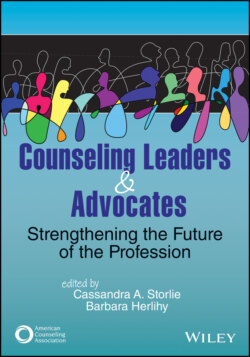Читать книгу Counseling Leaders and Advocates - Группа авторов - Страница 31
Applying Ecological Systems Theory to Enhance Culturally Responsive Counseling Leadership
ОглавлениеEcological frameworks, and frameworks that embed the context of the culture to our overarching society, can help us better understand a larger social ecology (Schriver, 2011) while also considering the environmental context of various subsystems, both close and farther away from the individual. We introduce a framework to better understand the systemic influences on culturally responsive counseling leadership that we conceptualized by applying Bronfenbrenner’s ecological and sociocultural model (Bronfenbrenner & Morris, 1998). Bronfenbrenner’s ecological systems theory incorporates various levels of ecosystems situated within a complex system of relationships influenced by the surrounding environment (Tissington, 2008). When considering culturally responsive counseling leadership, ecological systems theory highlights five nested structures—microsystem, mesosystem, exosystem, macrosystem, and chronosystem—that have been applied to counseling in the past to construct an understanding of how environmental influences can affect development (Bronfenbrenner, 1979). Using this model, we suggest advocacy steps in support of the Black Lives Matter (BLM) movement that highlight how counseling leaders can take direct action to combat systemic injustices.
